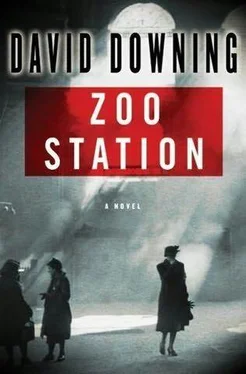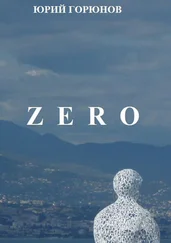David Downing - Zero Station
Здесь есть возможность читать онлайн «David Downing - Zero Station» весь текст электронной книги совершенно бесплатно (целиком полную версию без сокращений). В некоторых случаях можно слушать аудио, скачать через торрент в формате fb2 и присутствует краткое содержание. Жанр: Шпионский детектив, на английском языке. Описание произведения, (предисловие) а так же отзывы посетителей доступны на портале библиотеки ЛибКат.
- Название:Zero Station
- Автор:
- Жанр:
- Год:неизвестен
- ISBN:нет данных
- Рейтинг книги:5 / 5. Голосов: 1
-
Избранное:Добавить в избранное
- Отзывы:
-
Ваша оценка:
- 100
- 1
- 2
- 3
- 4
- 5
Zero Station: краткое содержание, описание и аннотация
Предлагаем к чтению аннотацию, описание, краткое содержание или предисловие (зависит от того, что написал сам автор книги «Zero Station»). Если вы не нашли необходимую информацию о книге — напишите в комментариях, мы постараемся отыскать её.
Zero Station — читать онлайн бесплатно полную книгу (весь текст) целиком
Ниже представлен текст книги, разбитый по страницам. Система сохранения места последней прочитанной страницы, позволяет с удобством читать онлайн бесплатно книгу «Zero Station», без необходимости каждый раз заново искать на чём Вы остановились. Поставьте закладку, и сможете в любой момент перейти на страницу, на которой закончили чтение.
Интервал:
Закладка:
“I…” She seemed at a loss for words.
“I know,” Russell said. “You can’t believe people could behave like this. But this lot do. All the time.”
As if to emphasize the point, the Truppfьhrer started shouting again. When she started shouting back he reached for her arm, and she kicked him in the shin. He backhanded her across the face with what seemed like enormous force, spinning her round and dumping her face-first on the snowy platform. She groaned and shook her head.
Russell put himself between them. “Look,” he said to the man, “this will get you court-martialed if you’re not careful. The Fьhrer doesn’t want you giving the English this sort of a propaganda victory.”
The British woman was groggily raising herself onto all fours. The stormtrooper took one last look at his victim, made a “pah!” noise of which any pantomime villain would have been proud, and strode away down the platform.
Russell helped her to her feet.
“What did you say to him?” she asked, gingerly feeling an already-swelling cheek.
“I appealed to his better nature.”
“There must be someone…” she began.
“There isn’t,” he assured her. “The laws don’t apply to Jews, or anyone who acts on their behalf. Just look after the children. They look like they need it.”
“I don’t need you to tell me…”
“I know you don’t. I’m just trying…”
She was looking past his shoulder. “He’s coming back.”
The Truppfьhrer had a Sturmfьhrer with him, a smaller man with round glasses and a chubby face. Out of uniform-assuming they ever took them off-he put them down as a shopkeeper and minor civil servant. Danzig’s finest.
“Your papers,” the Sturmfьhrer demanded.
“They’re in my hotel room.”
“What is your name?”
“John Russell.”
“You are English?”
“I’m an English journalist. I live in the Reich, and I have full accreditation from the Ministry of Propaganda in Berlin.”
“We shall check that.”
“Of course.”
“And what are you doing here?”
“I came to see what was happening. As journalists do. I intervened in the argument between your colleague and this Red Cross worker because I thought his behavior was damaging the reputation of the Reich.”
The Sturmfьhrer paused for thought, then turned to his subordinate. “I’m sure my colleague regrets any misunderstanding,” he said meaningfully.
The Truppfьhrer looked at the woman. “I apologize,” he said woodenly.
“He apologizes,” Russell told her.
“Tell him to go to hell,” she said.
“She accepts your apology,” Russell told the two brownshirts.
“Good. Now she must get back on the train, and you must come with us.”
Russell sighed. “You should get on the train,” he told her. “You won’t get anywhere by protesting.”
She took a deep breath. “All right,” she said, as if it was anything but. “Thank you,” she added, offering her hand.
Russell took it. “Tell the press when you get back to civilization,” he said, “and good luck.”
He watched her mount the steps and disappear into the train. The children were all aboard now; most had their faces pressed against the windows, frantically wiping their breath from the glass to get a last clear look at their parents. A few had managed to force back the sliding ventilators and wedge their faces in the narrow gap. Some were shouting, some pleading. Most were crying.
Russell tore his gaze from the windows just in time to see a small girl leap nimbly down from the train and race across the platform. The stormtrooper by the door spun to catch her, but slipped in the slush as he did so, and fell face-first onto the platform. As he struggled to his feet a boy of around ten rushed past him.
The little girl’s arms were tightly wrapped around her kneeling mother’s neck. “Esther, we have to get on the train,” the boy said angrily, but daughter and mother were both crying too hard to notice him. The father’s anguished appeals to reason-“Ruth, we have to let her go; Esther, you must go with your brother”-fell on equally deaf ears.
The stormtrooper, red-faced with anger, took a fistful of the girl’s long black hair and yanked. The shock tore her arms from her mother’s neck, and he started dragging the girl across the slush-strewn platform to the train. The mother shrieked and went after them. He let go of the girl and crashed his rubber cosh across one side of the mother’s face. She sank back, a rivulet of blood running onto her coat collar. As the stormtrooper went to hit the woman again, her husband grabbed for the cosh, but two other brownshirts wrestled him to the ground, and started raining down blows on his head. The boy picked up his whimpering sister and shepherded her back onto the train.
More stormtroopers came racing up, but they needn’t have bothered. Like Russell, the watching parents were too stunned to protest, let alone intervene.
“I don’t want to go,” a small voice said behind him.
He turned to find its owner. She was standing on a seatback, face twisted sideways in an open ventilator, brown eyes brimming with tears. She couldn’t have been more than five.
“Please, can you tell the policemen that I don’t want to go? My name is Fraulein Gisela Kluger.”
Russell walked across to the train, wondering what on earth he could say. “I’m afraid you have to make this trip,” he said. “Your mother and father think you’ll be safer in England.”
“But I don’t want to,” she said, a large tear sliding down either cheek.
“I know, but…” Another whistle shrilled down the platform; a spasm of steam escaped from the locomotive. “I’m sorry,” he said helplessly.
The train jerked into motion. A momentary panic flitted across her face, followed by a look that Russell would long remember-one that blended accusation, incomprehension, and the sort of grief that no fiveyear-old should have to bear.
As the train pulled away a tiny hand poked out through the window and waved.
“I’m sorry,” Russell murmured.
Another hand grasped his arm. The Truppfьhrer’s. “You, English. Come with us.”
He was ushered down the platform in the Sturmfьhrer’s wake. Most of the mothers and fathers were still focussed on the disappearing train, their eyes clinging to the red taillight, the last flicker of family. They had sent their children away. To save their lives, they had turned them into orphans.
One woman, her eyes closed, was kneeling in the snow, a low keening noise rising up from inside her. The sound stayed with Russell as he was led out of the station. The sound of a heart caving in.
In the goods yard the Truppfьhrer pushed him toward a car. “My hotel’s just across the road,” Russell protested.
“We will collect your papers,” the Sturmfьhrer said.
As they bundled him into a car, it occurred to Russell that Shchepkin’s envelope was still sitting on his nightstand.
Danzig was waking up as they drove back toward the city center, shopkeepers clearing the night’s snow off their patches of sidewalk. Russell kept his eyes on where they were going, hoping to God it wasn’t some SA barracks out of humanity’s hearing range. As they pulled up outside an official police station on Hunde-Gasse he managed to suppress an audible sigh of relief.
The Truppfьhrer pulled him out of the car and pushed him violently toward the entrance doors. Russell slipped in the snow and fell up the steps, catching a shin on one of the edges. There was no time to check the wound, though-the Truppfьhrer was already propelling him forward.
Inside, a uniformed police officer was cradling a steaming cup of coffee. He looked up without much interest, sighed, and reached for the duty book. “Name?”
Читать дальшеИнтервал:
Закладка:
Похожие книги на «Zero Station»
Представляем Вашему вниманию похожие книги на «Zero Station» списком для выбора. Мы отобрали схожую по названию и смыслу литературу в надежде предоставить читателям больше вариантов отыскать новые, интересные, ещё непрочитанные произведения.
Обсуждение, отзывы о книге «Zero Station» и просто собственные мнения читателей. Оставьте ваши комментарии, напишите, что Вы думаете о произведении, его смысле или главных героях. Укажите что конкретно понравилось, а что нет, и почему Вы так считаете.












